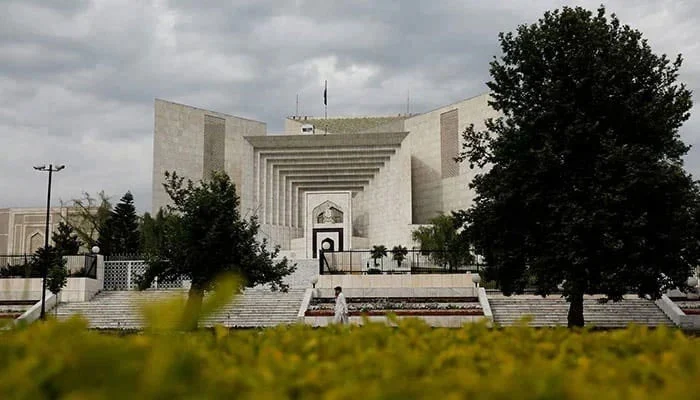Supreme Court Challenges Fairness of Super Tax, Sparking National Economic Debate
In a landmark hearing that could reshape Pakistan’s taxation landscape, the Supreme Court has raised critical questions about the equity and implementation of the controversial super tax, signaling potential significant implications for businesses and the national economy.
Key Highlights:
The Supreme Court bench, led by Chief Justice Umar Ata Bandial, meticulously examined the government’s rationale behind imposing additional taxes on high-earning sectors, challenging the fundamental fairness of the current taxation mechanism.
Legal and Economic Implications:
Experts argue that the super tax, initially introduced as a temporary measure to generate revenue during economic challenges, has raised substantial concerns about its long-term economic impact. The tax targets sectors including banking, cement, petroleum, steel, and telecommunications, imposing an additional 1-4% levy on companies earning over 300 million rupees.
Critical Questions Raised:
Justice Bandial pointedly questioned the tax’s proportionality and its potential disproportionate burden on specific industries. The court’s scrutiny suggests a deeper examination of the government’s fiscal policies and their potential unintended consequences.
Stakeholder Perspectives:
Business leaders have expressed growing apprehension about the tax’s potential to discourage investment and economic growth. Muhammad Ali, a prominent economic analyst, noted, “The super tax represents a complex challenge between immediate revenue generation and long-term economic sustainability.”
Potential Outcomes:
The Supreme Court’s intervention could potentially:
-
Mandate a comprehensive review of the tax’s implementation
-
Require more transparent justification from government authorities
-
Potentially modify or restructure the current taxation approach
Context and Background:
The super tax was initially introduced as part of emergency economic measures, aimed at generating additional revenue during Pakistan’s ongoing economic challenges. However, its continued implementation has sparked significant debate about its effectiveness and fairness.
Expert Analysis:
Economic experts suggest that while emergency revenue measures are sometimes necessary, they must be carefully balanced to avoid stifling economic growth and investment potential.
Broader Implications:
The Supreme Court’s questioning represents a critical moment in Pakistan’s ongoing economic governance, potentially setting precedents for future taxation policies and governmental fiscal strategies.
Conclusion:
As the legal proceedings continue, the nation watches closely, recognizing that the outcome could have far-reaching consequences for businesses, economic policy, and national financial strategy.
The hearing underscores the delicate balance between generating necessary government revenue and maintaining a supportive environment for economic growth and investment.
Sponsored: Looking for the best CCTV camera in Pakistan? Shop Lowest price Wifi cameras, IP cameras, Wireless cameras, Long range 4G Solar security cameras Indoor Outdoor Bulb camera 4G Camera and Multi Lans cameras and other electronics for home and business at unbeatable prices. MyGSS.pk offers a wide selection of quality brands like VStarcam, IMOU, Dahua, Ezviz, Tenda, V380, Hikvision, and TP-Link and also the official distributor of VStarcam brand.”. COD is available in Lahore, Karachi, Islamabad, Rawalpindi, Pashiwer, Multan, Quetta, & over 300+ cities and towns in Pakistan, And offers CCTV camera Installation guide website


